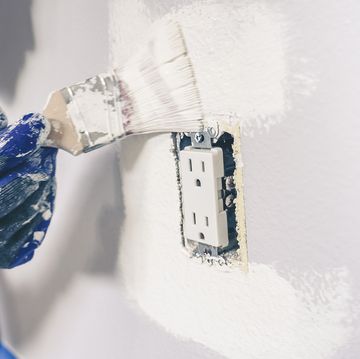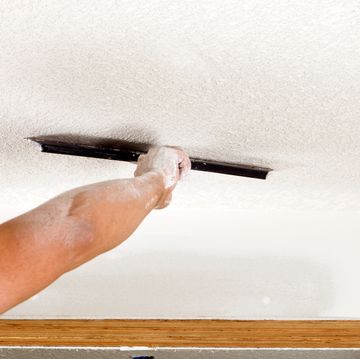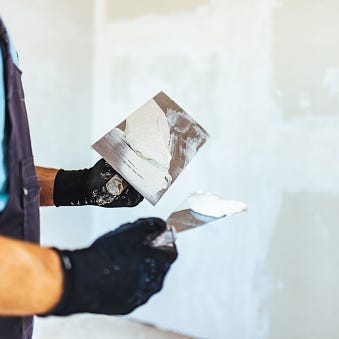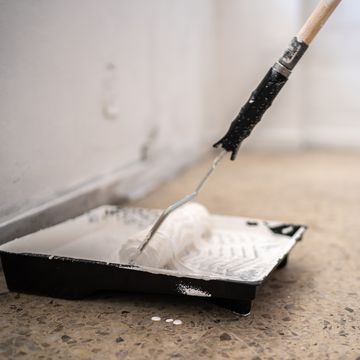1. Read the instructions. Twice. You wouldn't cook a recipe without reading through the instructions. (And if you would? Don't do that either!) Don't start a DIY project without doing the same. Reading through the full instructions ahead of time will clue you into difficult and time-consuming steps, and let you know if you need to prep anything beforehand.
2. Don't overestimate your skill level. Don't get us wrong: We're ALL for ambition. But there's a stark difference between being ambitious and being foolhardy. If the project requires skills and knowledge you don't already possess, take the time to learn them — or at least watch a few informational Youtube videos. Otherwise, you risk a sloppy project. (Or ruining it altogether!)
READ MORE: Chris Barrett on Decorating Her Small California Bungalow
3. Don't give up, even if it's hard. DIY is hard work, so don't feel bad if you're stressed! If a tricky project is overwhelming you, feel free to take a break — go on a walk, have a glass of wine, watch an episode of Empire. Whatever makes you feel relaxed. But get back on that horse once you've calmed down. You'll never learn if you don't keep pushing yourself.
4. Don't make substitutions (unless you know what you're doing). If you're a long-time reader of Pinterest Fail (and if you're not, start now!), you'll know the number-one downfall of well-intentioned DIY projects: Substitutions. Take this "time-out bottle" fail, where she learned that big flakes of glitter don't act like little flakes of glitter. Same goes for things like spray paint — some are made for specific uses, like fabric, and swapping them out could cause disaster.
READ MORE: Inside a Charming 1,050-Square-Foot Bungalow in Los Angeles
5. Don't rush. Slow down. Especially when you're a beginner, allocate at least double the amount of time you think a project should make. Surprising things take a lot of time — you may have to sand your project twice, or put on an extra layer of paint. Or maybe you'll realize halfway through that hand-sewing takes a lot of time. No matter what you learn, you don't want to be pressed for time. Rushed projects never look as great as those done with care and precision!
6. Read reviews from others. The world desperately needs a website where crafters can review DIYs — but until that happens, take the time to search out others who have undertaken the same projects. Most super-popular Pins have legions of blog posts explaining how the project went, as well as suggestions for improvements. Knowing what pitfalls may lay before you will make the whole process smoother.
READ MORE: Take A Look At The Homes Of This Year's Oscar Nominees
7. Don't get disheartened. So your DIY was a fail — so what? Mistakes happen. Things don't work out like you might have hoped. But that doesn't mean you didn't learn something. Take that little something you learned to your next project, and your next. Eventually you'll be able to overcome any stumble.












